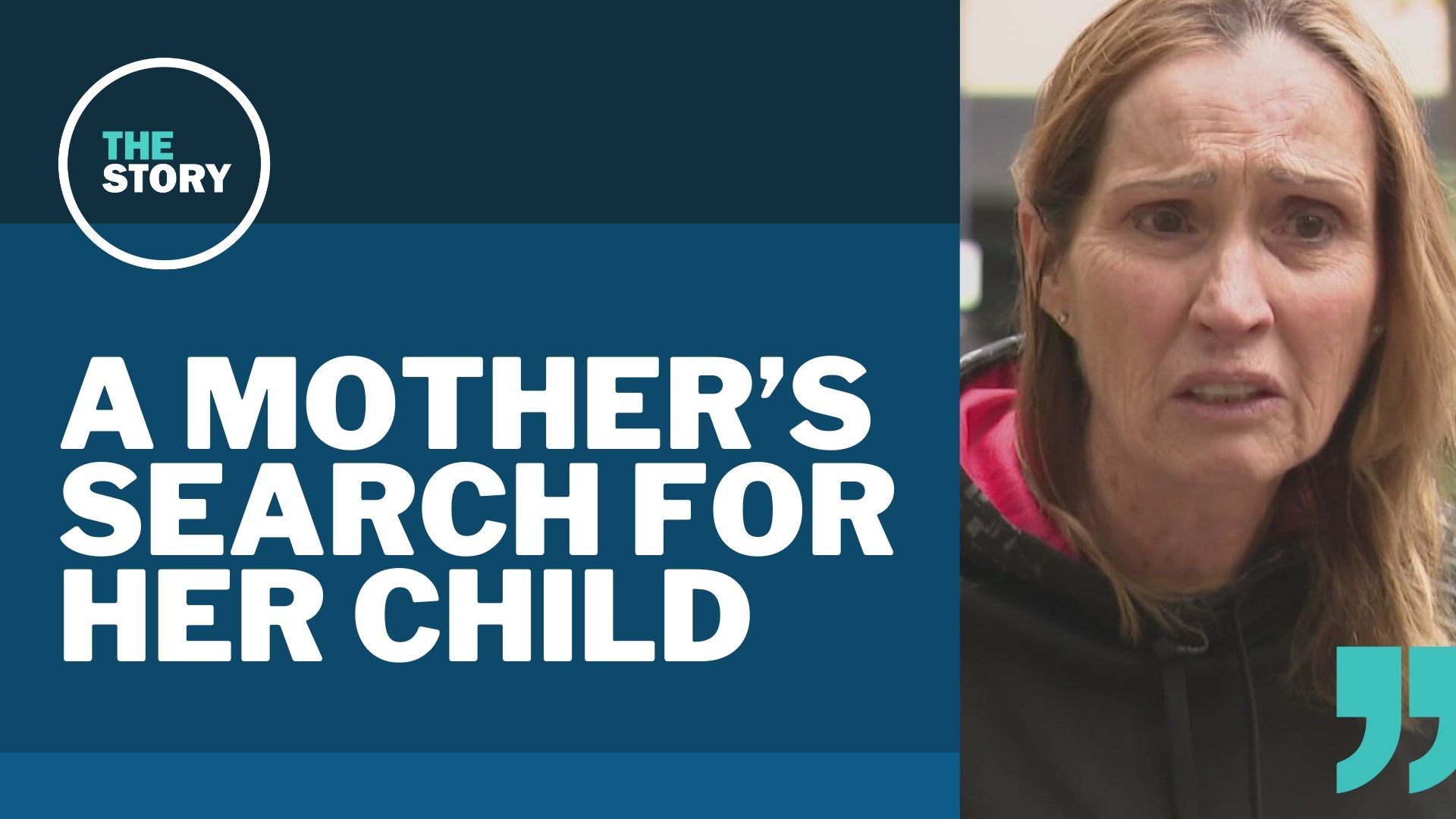PORTLAND, Ore. — Once every other month for three years, Anna makes the six-hour drive across Oregon from Ontario to Portland to look for her son. He's homeless and addicted to hard drugs.
To her, the streets of Portland are a tangled maze, and she never knows what she might find.
“He was soaked to the bone. He had on a sweatshirt, and I squeezed the water out. His feet are rotted, he's losing all of his toenails,” she said of a recent time she found him lying under a bush. Her son struggles with an addiction to heroin, among other things. She asked KGW not to use his name to protect his privacy.
“I always stay for at least three days here looking. Even if I don't find him, I spend three days,” she said on Wednesday while sitting in a downtown Portland park her son often spends time in. The last time she found him, he let her take him to detox. But because he was over 18, the doctors didn't notify Anna when he was released.
“To go to bed every night and not to know where your son is if he's alive, if he's dead, if he's freezing to death, it's hard, it's draining,” she said of the never-ending agony the situation causes her.
Her son ended up back on the streets. Recovery housing was full in Portland at the time.
“There's no wrap-around service. There's no 'this is step one, you make it through, there this is step two and then we put you in a halfway house,'” she said.
Anna's son went to the Hooper Detox Stabilization Center in North Portland. Sarah Spofford, who works at the center, said the lack of available recovery housing beds forces staff to send 58% of patients back into homelessness.
“It's terrifying for the patients and they're begging to stay and they're begging for another option,” she said.
The facility serves more than 200 people per month, but has to turn away just as many people due to the lack of beds.
“It just feels like we are putting a band-aid on folks, even though we try to give evidence-based care, and it's pretty shattering,” said Central City Concern associate medical director Mike Winer.
It’s especially shattering for mothers like Anna. She’s been diagnosed with a terminal illness, which makes every step of her search that much heavier.
“It's tiring. It's hard to be up here. It’s emotionally draining, it's physically draining, and I’m not getting anywhere,” she said.
Anna said she did find her son this week and made 22 phone calls to different transitional housing sites. There weren't any openings, so she gave him two sleeping bags and a new tent, which she helped him set up along a freeway. The next morning, KGW’s Blair Best went to his tent site and left him a note with a number to call for treatment.
“I just want to wrap him up and take him home, but that wouldn't be good for him. It's not good for him to be here. I don't have the answer. I don't know what I should do,” Anna said, as she continues to fight and save her son before time runs out.
“I fear he's going to die out here on fentanyl or that I’ll never get him back before something happens to me, I’ll never bring him home,” she said.

